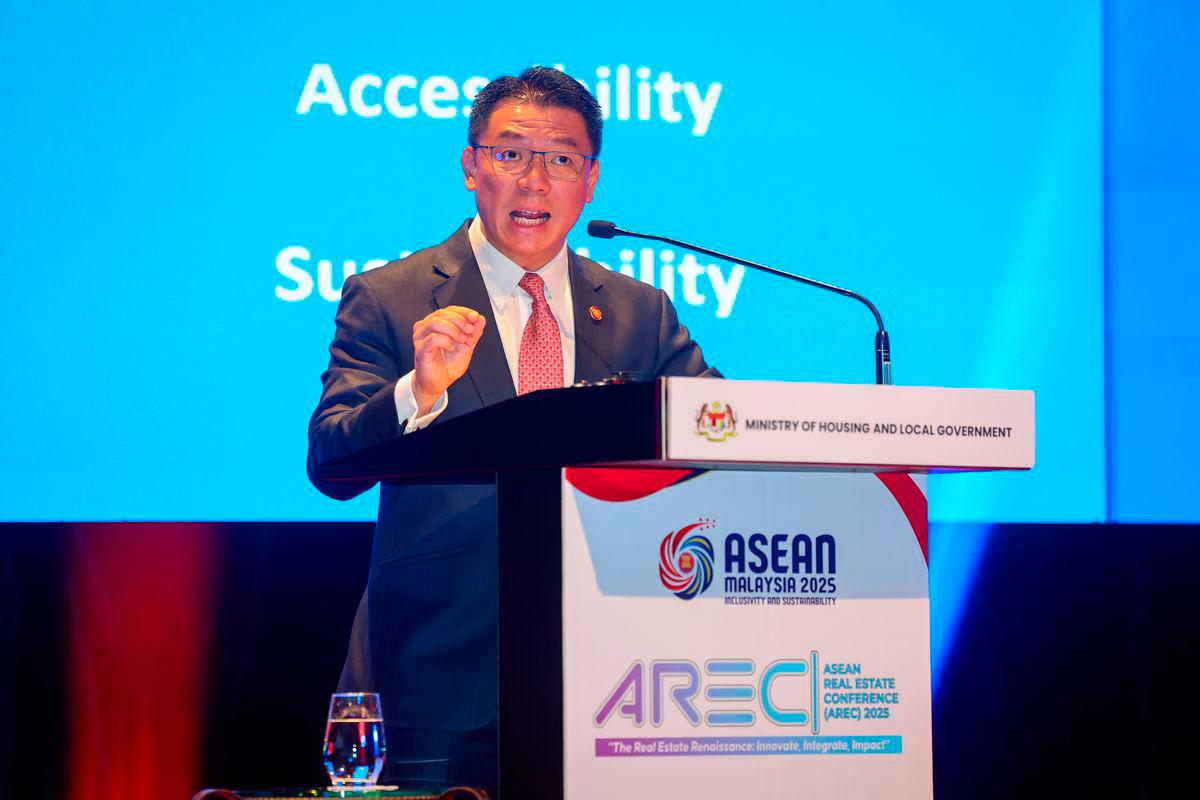KUALA LUMPUR: ASEAN must spearhead reforms in the real estate sector to navigate global economic volatility, rapid urbanisation, and structural changes, said Housing and Local Government Minister Nga Kor Ming.
Speaking at the ASEAN Real Estate Conference (AREC) 2025, he described the region as facing a “perfect storm” of challenges, including supply chain disruptions and fluctuating property demand.
“We stand at a pivotal moment where real estate is no longer just about buildings, but about building futures—where every citizen finds not just shelter, but dignity and opportunity,“ Nga said.
Citing UN ESCAP data, he noted that ASEAN’s urban population is expected to grow by 90 million by 2030, requiring 10 to 12 million new housing units annually.
However, market instability has impacted property sales, with luxury condominium prices in Ho Chi Minh City dropping by eight per cent due to oversupply, while industrial real estate surged by 22 per cent.
Nga highlighted material price volatility as another challenge, with steel prices fluctuating by up to 30 per cent and the Malaysian ringgit weakening to RM4.80 against the US dollar before recovering.
“These uncertainties complicate supply chain planning by altering import and export costs,“ he said.
Beyond immediate issues, Nga outlined three irreversible shifts affecting the sector: sustainability demands, urbanisation pressures, and geopolitical capital repricing.
“Green features are no longer premium options but minimum requirements,“ he said, noting that sustainable materials now add up to 15 per cent to construction costs.
To future-proof the industry, Nga proposed an ASEAN housing model based on data-driven planning, public-private-people partnerships, and tailored solutions for member states.
He cited Malaysia’s Rent-to-Own (RTO) scheme as a successful example, aiming to boost homeownership from 77 per cent to 80 per cent by 2030.
Nga also suggested forming a Regional Housing Policy Lab and an ASEAN Urban Agenda Progress Dashboard to monitor affordable housing and carbon reduction goals.
As Malaysia chairs the UN-Habitat Assembly, he stressed aligning ASEAN strategies with the New Urban Agenda for inclusive and sustainable development.
“Housing is not about brick and mortar. It is about dignity, stability, and a shared future where no ASEAN citizen is left behind,“ he concluded. – Bernama









